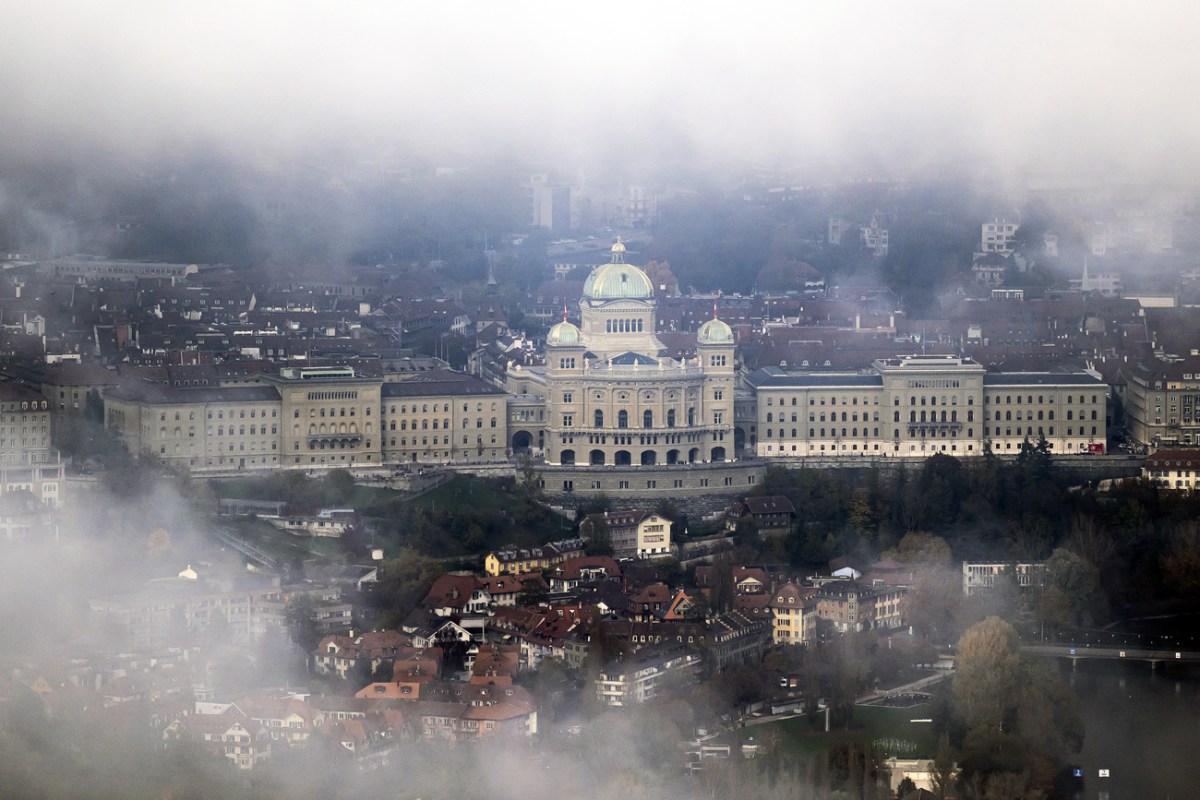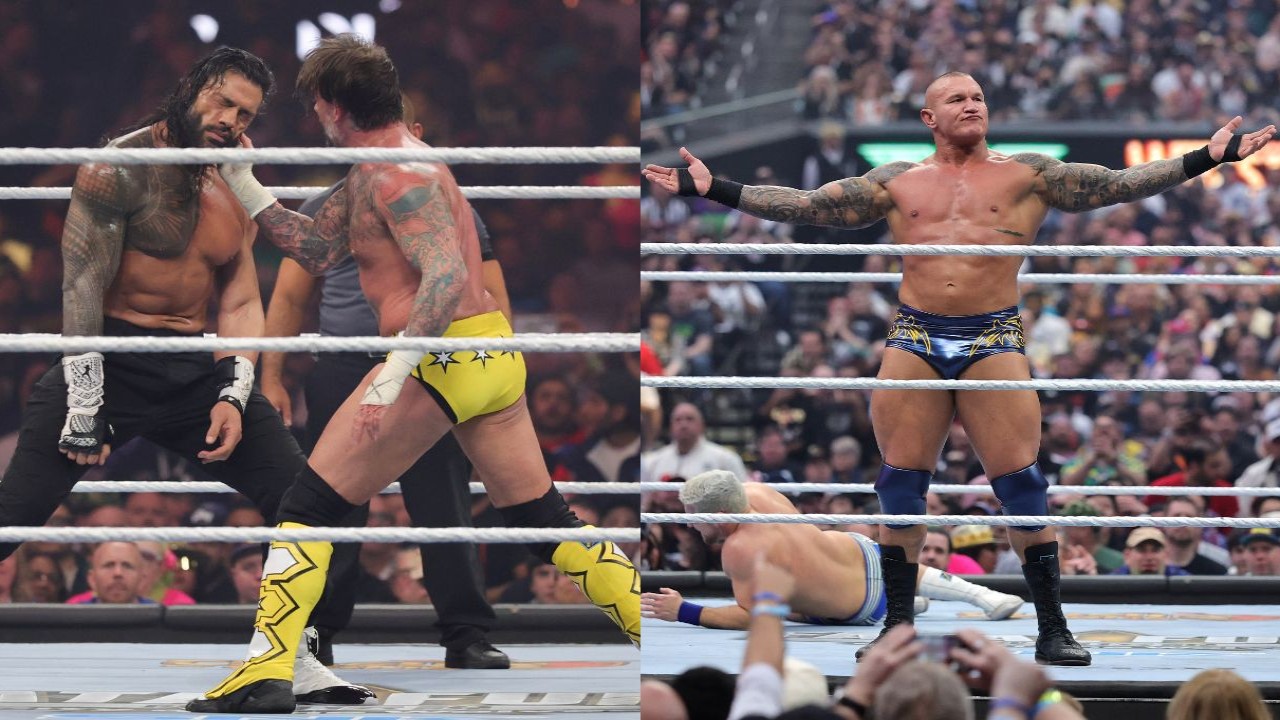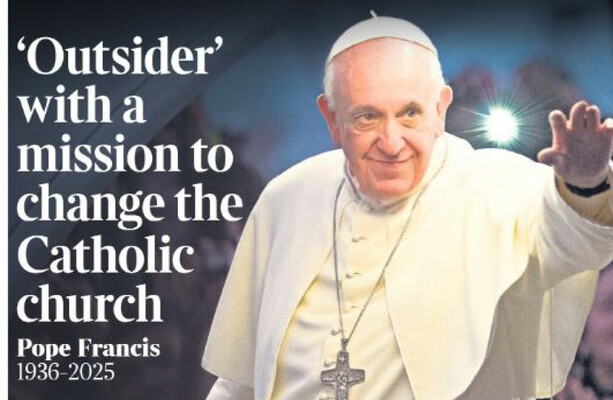‘One for all, all for one’

‘One for all, all for one’ – how the Swiss government makes decisions Foggy business: the Swiss government tends to be tight-lipped about what exactly happens when it meets. Keystone / Anthony Anex Listen to the article Listening the article Toggle language selector Select your language Close English (US) English (British) Generated with artificial intelligence. Close Share Secret meetings, no prime minister, and a seven-head executive that defends decisions as a collective body – the Swiss system of “collegiality” explained. 8 minutes The contrast couldn’t be greater. In the world’s richest and most powerful country, a president has entered office determined to use every inch – and more – of executive power to push his agenda. Not only are opponents frozen out; Donald Trump reportedly doesn’t even consult alliesExternal link before throwing global tariffs into turmoil. In rich but slightly less powerful Switzerland, what the federal president and her government colleagues personally want isn’t always so clear. As Europe re-arms, is new defence minister Martin Pfister planning any daring moves? Difficult to say. Even if Pfister fancied cutting all ties with NATO or joining it outright, he couldn’t unilaterally make such a call – nobody in Switzerland can. Solo missions simply aren’t part of the country’s governing Federal Council, where ministers are bound to follow a principle Pfister himself has repeatedly referred to since being elected: collegiality. Collective decisions and a single voice Anchored in article 177 of the federal constitution, collegiality is yet another element playing into the core goals of Swiss politics: achieving consensus and making sure nobody can grab too much power. Essentially, it means the government is collective and non-hierarchical: the ministers, who represent the country’s four biggest parties, decide as equals. There’s no prime minister pulling the strings. (The presidency rotates among the seven ministers each year and is largely a ceremonial and coordination role.) Read more about how Switzerland’s unique system of an annual rotating presidency works: More More Switzerland’s 20 living ex-presidents: a world record This content was published on Twenty former Swiss presidents are still alive. What does this record say about the country’s political stability and leadership? Read more: Switzerland’s 20 living ex-presidents: a world record Just as importantly, once decisions are taken, whether unanimously or by a majority vote, all ministers must defend them publicly. Private or party stances take a back seat. For example, in 2023 the government campaigned in favour of a new law to reach climate neutrality by 2050. The right-wing Swiss People’s Party, to which Environment Minister Albert Rösti belongs, was opposed. Rösti, a former president of the People’s Party, also had ties to the oil industry before taking office. What might he have said about the law had he not been a minister? We’ll never know. Once the government set its course, he publicly backed it – and is now implementing it. Meanwhile, to ensure this sense of unity isn’t undermined, government meetings are secret, and protocols are released only after 30 years – that is, unless they’re leaked to the media sooner… “One for all, all for one”: something of an unofficial slogan in Switzerland, where it also refers to the federal union of the 26 cantons. Keystone / Peter Klaunzer Job stability For ministers, this can lead to situations bordering on cognitive dissonance. It can’t be easy to promote a policy you privately oppose. Nor is it easy to argue against something which is fiercely popular among your own party – as Interior Minister Elisabeth Baume-Schneider from the left-wing Social Democratic Party had to do in 2024, when she led the government’s campaignExternal link against a pension hike. Of course, in other liberal democracies, cabinet ministers also have to toe the line on government policy. Sometimes it’s not clear whether they do this out of conviction, pragmatism or sheer loyalty to a powerful boss – a Trump, say. But ministers in other democracies also tend to come and go: they get fired when they mess up, or resign when they don’t agree with government policy. Or citizens vote them out in elections. For Swiss ministers, one reward for publicly biting their tongue is job security. In theory, they can get booted out of office once every four years, when parliament votes to renew the cabinet as a whole – but this almost never happens. As a result, tenures are long: since the foundation of the modern Swiss state in 1848, the average ministerial term has been over ten years. ‘Lack of responsibility’ or ‘common destiny’? This might sound odd to people who think mistakes should be punished by rolling heads. Political analyst Michael Hermann has written that the collective nature of government – along with other Swiss methods to break up power, such as federalism and direct democracy – can lead to a “responsibility deficit”. When “everybody and nobody” makes decisions, it’s unclear whom to hold accountable, the argument goes. How direct democracy gives citizens a say in Swiss political affairs – and over their elected representatives: More More How Swiss direct democracy works This content was published on What do direct democratic tools like popular initiatives and referendums really entail? And how has this unique system evolved over time? Read more: How Swiss direct democracy works Others reckon collegiality helps to avoid volatile political swings. Kaspar Villiger, a government minister from 1989 to 2003, has written that the risk of serious political or economic crashes increases according to how “uncontrolled” executive power is. Swiss ministers can meanwhile “afford to be unpopular” if it furthers the national interest, Villiger said in a 2023 essayExternal link. He also thinks long terms in office help to build up experience and expertise. Less tangibly, collegiality is sometimes seen as something of a value in itself – a core element of the personality of the “seven wise ones”, as the ministers are sometimes called. Villiger writes how “a group feeling can develop, even the sense of a common destiny, from which emerges a strong collective will to perform above the average”. Another ex-minister, Didier Burkhalter, compared collegiality – particularly the avoidance of public spats – to the image of a protective “wall” surrounding the government’s work. A rare glimpse behind closed doors: the Swiss government meeting in early 2025. Keystone / Peter Klaunzer Cracks in the wall However, given that ministers stem from four very different parties, and that politicians are ambitious and strategic creatures, the “wall” doesn’t always hold. Leaks, political tiffs and Machiavellian scheming all lurk. Yet whether “breaches” of collegiality have been increasing in recent years is hard to say. The principle is often said to be “under pressure”. We at SWI swissinfo.ch have previously written that collegiality was “strained in recent years by the polarisation of Swiss politics” – in 2006. More recent media speculation, especially after the resignation of former Defence Minister Viola Amherd, has also referred to a “far from collegial atmosphere in cabinetExternal link”. But generally the principle as such, which has been in place for 177 years, is not in question. “Political elites are attached to it,” says Pascal Sciarini, a professor at the University of Geneva and co-editor of the Oxford Handbook of Swiss Politics. Collegiality rather faces other challenges, Sciarini says. One is “departmentalisation”. Compared to 1848, when the government was created, the world has become quite complex. And with just seven government departments, ministers are increasingly forced to focus on their own (very wide) policy areas. This can distract them from the bigger strategic picture and from being able to weigh in on ideas coming from other ministries. One way to reduce the workload could be to increase the number of ministries; after all, other countries sometimes have dozens. But here, the downside could paradoxically be more disagreements and less unity. “It’s hard enough to maintain collegiality with seven ministers,” Sciarini says. More Debate Hosted by: Samuel Jaberg How have recent political and economic events influenced your trust in the Swiss government? For the first time, those who distrust the government outnumber those who trust it. Why? Join the discussion 47 Likes View the discussion Lack of leadership? As for the current government, Sciarini reckons it is “quite respectful” of collegiality. However, he also reckons it lacks leadership on what many see as the key strategic issue facing Switzerland in coming years: relations with the European Union. Could a different government structure help to foster such leadership? A more empowered president, say, or a foreign minister who could take more responsibility? Not necessarily, Sciarini thinks. For him, it’s rather up to the government as a whole to make a strong, unified public statement to clarify its position. This would then free the way for ministers – all seven – to become more active in promoting it. “There is no contradiction between leadership and collegiality,” Sciarini says. Edited by Benjamin von Wyl/ts External Content Your subscription could not be saved. Please try again. Almost finished… We need to confirm your email address. To complete the subscription process, please click the link in the email we just sent you. Weekly The SBC Privacy Policy provides additional information on how your data is processed. After subscribing, you will receive a one-off welcome series of six newsletters and then updates and info on SWI swissinfo.ch up to six times a year. I consent to the use of my data for the SWI swissinfo.ch newsletter. Subscribe See all newsletters
















